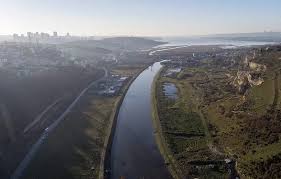Europe is expected to undertake Europe Plans to Build One of the World’s Busiest Canals one of its largest infrastructure initiatives through the construction of the Istanbul Canal in Turkey that is projected to cost over $20 billion to support enhanced regional commerce. This canal which is expected to be one of the world’s most busy is intended to twart the Bosphorus Strait, one of the world’s most important and crowded waterways. The project leverages local and international expertise to ensure its success. It brings on board local-based companies such as Yapi Merkezi and Cimko. International companies such as Bechtel are also expected to facilitate the project’s implementation.
Construction cost for the World’s Busiest Canals
The Istanbul Canal project is a project that is expected to take about $25 billion where the canal is expected to be 45km long and on plan to be completed by 2027. This new canal will connect the Black Sea with the Sea of Marmara and will pave the way for the thousands of ships that facilitate the Bosphorus every year. In such a way, the canal should not only eliminate congestion but also address the challenges that are characteristic of the Bosphorus’ narrow and meandering channel in terms of environmental and safety issues. It is actually a work of civil construction that involves trade and transportation as well but has urban and economic benefits.
Scope
The construction of this canal is expected to cause development of the suburbs of Istanbul which will include more residential areas, commerce, and industries alongside the canal. For this initiative, the current Turkish government anchored on President Erdogan perceives this project as a critical phase in the government’s vision of transforming Istanbul into an international trade center to cement Turkey’s dominance in the region. However, this project has not gone without criticisms. Critics have pointed out that the project will most likely have negative effects on the environment regarding the Black Sea and the Sea of Marmara special ecosystems. However, the Turkish government has not relented on this move despite these concerns, believing that the long-term economic gains will overshadow the environmental losses.
In conclusion, the Istanbul Canal can be regarded as a project of historical significance for Turkey and for Europe in general as it is expected to alter the character of sea-transportation in the region while initiating a massive process of urban and economic growth.

